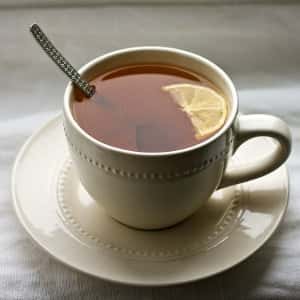
Recurrent headaches are extremely common. When people have too many headaches one right after the other, the temptation to rely heavily on headache medicine is strong. But it can be a big mistake, leading to medication overuse headaches (also known as rebound headaches) that are very difficult to overcome. Could the L-theanine in a cup of tea help prevent repeat headaches?
Watching Out for Caffeine as a Cause of Headaches:
Q. I’ve suffered from headaches most of my life. After menopause, they became brutal nighttime or early morning headaches. I was beside myself and was taking far too much Excedrin.
I’ve always limited myself to one cup of coffee in the morning, with no other caffeine during the day. One day two months ago I had had a dreadful headache since early morning and just suffered through the day with it. I went to visit a friend that afternoon, wishing I could get home quickly and take something for my aching head. We had a cup of tea together.
When I got home later, I realized my headache was gone. Even more surprising, I had no headache the next morning.
Ever since then I have had a cup of black tea every afternoon and I have been headache free for two months. My life has improved immeasurably. You can’t imagine the difference it has made to wake up with a clear head and not have to take Excedrin all the time. Who knew tea would keep headaches from developing?
How Tea Might Help Ease a Headache:
A. You may have been getting much more caffeine than you realized, even though you weren’t drinking much coffee. Each dose of Excedrin Migraine contains 65 mg of caffeine, about as much as two-thirds of a cup of coffee and more than a cup of black tea. There is evidence that ingredients in tea, including L-theanine and caffeine, affect the brain (Haskell et al, Biological Psychology, Feb. 2008). Whether anyone else would benefit as you have is unclear. A double-blind study found that L-theanine counteracts many of the effects of caffeine on the brain (Dodd et al, Psychopharmacology, July 2015).
We offer a number of non-drug approaches for preventing or easing headache pain in our Guide to Headaches and Migraines.
Preventing Medication Overuse Headaches:
When it is possible to pre-empt a headache without drug treatment, we are usually in favor. Joel Saper, MD, FACP, FAAN, one of the country’s leading experts on headaches, has told us that relying too heavily on pain medicine for recurrent headaches can sometimes lead to rebound headaches that are very difficult to treat. To listen to our conversation with Dr. Saper, you may wish to order the hour-long CD or MP3.
Revised 5/7/2017

